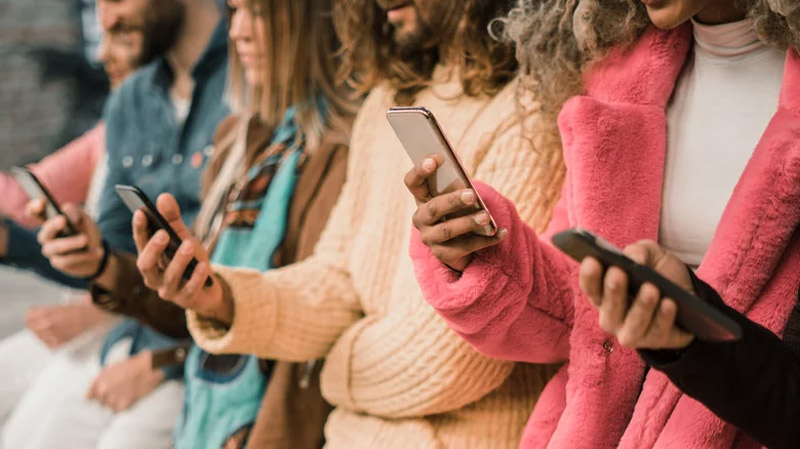![[feature] Is 'Phubbing' Harming Your Relationship?](https://blogger.googleusercontent.com/img/b/R29vZ2xl/AVvXsEgExVJGabZXLIlokIyGvM-DIq3fjIZ0NHlm-_rT_amgDvtjNDob8zNEQU1XstJuy6XHkWWQ104cwn7OLuvkWvNKB6dpKQgTmLN_GrDYqbi7UqiElNIkb8sd5Adg7SMqtpo6KFA07-5F8R2-CekMkyDzGHFJ_kN7ewAM8UEkqNYAEvd4PupjgL9iCjfh/s16000/phubbing.jpg) |
| Ⓒ Provided by Glam |
By Amanda Chatel, Glam
Although technology has made our lives better — can you imagine a world without no FaceTime at all? It has also created distance despite all the connectedness it provides. People no longer go to libraries because they can look up things online or even read a whole book on Google on their device. Do you remember the last time you made a reservation on your phone that involved talking to an actual human? Probably not — there are websites and texting for that. What was once meant to make things easier has since created barriers. For example, engagement with those around us tends to go down in favor of doomscrolling for hours or even just blankly staring at our phone because it's there.
"Most people don't pick up their phones and say, 'Because you're talking, I'm just going to go on my phone,'" certified sex therapist Shamyra Howard tells USA Today. "People are really connected to their cell nowadays, and we inadvertently and mindlessly scroll through it without even realizing it, which can be annoying to those around us."
While it may seem innocent enough, especially if one person is already on the phone, perhaps sending an important email, it shouldn't be that difficult to wait a couple seconds for someone to resume the conversation that was being had. But in this culture of now, now, now, it appears to be too tricky to wait, so the phubbing begins.
Read More: 6 Habits That Increase Your Odds Of Divorce, From A Marriage Therapist
What Is Phubbing?
 |
| Ⓒ Provided by Glam |
What do you get when you combine the words "phone" and "snubbing?" Phubbing. Cute, no? Apparently, the word first made its way into vocabularies in 2012 when an Australian ad agency launched a "Stop Phubbing" campaign in the hopes of making people not only aware of the fact that they're phubbers but that phubbing wasn't doing their relationships — romantic or platonic — any favors either.
Research published in Science Direct found that phubbing behavior is often linked to a lack of self-control, fear of missing out (FOMO), and basic addiction to the phone or Internet as a whole. The same study found that 32% of those with a phone engaged in phubbing two to three times a day, and 17% phubbed a minimum of four times a day. White people are far more likely to phub than any other ethnicity, and those with a higher education tend to phub less.
But while these numbers are certainly eye-opening, the real question is whether or not phubbing can damage your relationship and, if so, how badly?
Is Phubbing Hurting Your Relationship?
 |
| Ⓒ Provided by Glam |
Not only does phubbing create an emotional disconnect, which is evident as the phone is clearly creating a wall between partners, but it can affect mental health too. A study by researchers at Baylor's University found that 46.3% of participants reported being phubbed by their partner, 22.6% cited phubbing as the cause of relationship conflict, and 36.6% experienced feelings of depression because of their partner's incessant phubbing.
"Phubbed people feel excluded, unimportant, and ostracized, as sustained exclusion can lead to individuals questioning their self-esteem and sense of belonging, ultimately messing with their mental state," clinical sexologist Rachel Sommer, Ph.D., tells WeddingWire.
Because we all have different love languages, phubbing can be even more detrimental to those who experience and express love through quality time — there's no such thing as quality time when there's a phone involved. So, while your partner may not be actively trying to hurt you or the relationship, research has proven that it still does. The first way to tackle the phubbing issue is to point out to your partner their phubbing ways. If they can't see it, then you may need to call in backup, like friends and family who have either witnessed it happening or have been on the receiving end of it too. Hopefully, a little phubbing intervention will help your partner become aware of their behavior, even if they're not ready to put down their phone just yet.
Read More: Top 8 "Minor But Toxic" Things to Stop Saying to Your Partner
See more at Glam






















